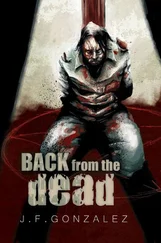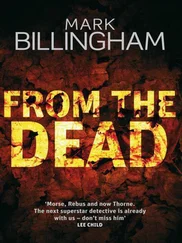Nils can see the two dead soldiers lying out there on the alvar; he can see their staring eyes inside his brain.
“No,” says Nils, shaking his head.
There’s a rushing sound in his ears. The train begins to brake.
“Did you meet the foreigners out on the alvar, Nils?” asks the policeman, putting his handkerchief away.
The train stops, jolting the carriages slightly. After only half a minute or so it begins to move again.
“You did, didn’t you?”
All the time the policeman is looking at him and waiting for a reply. His steady gaze sears Nils’s face.
“We’ve found the bodies, Nils,” he says. “Was it you who shot them?”
“I didn’t do anything,” says Nils quietly, his fingers fumbling with the opening of his rucksack.
“What did you say?” asks the policeman. “What have you got there?”
Nils doesn’t reply.
The wheels begin to pound again, the whistle screams, his fingers tremble and search and burrow into the rucksack, which falls over on its side. His right hand gropes among his clothes and possessions.
The police officer half gets up from his seat; perhaps he has realized that something is about to happen.
The train whistle screams in terror.
“Nils, what have you got—”
Inside the rucksack, Nils’s fingers close firmly around the sawn-off shotgun. He presses the trigger and the gun jerks among the clothes inside the rucksack.
The first shot shreds the bottom of the rucksack, ripping up the seat beside the policeman. Splinters of wood spray up toward the ceiling.
The police officer jumps at the noise, but doesn’t try to take cover.
He has nowhere to go.
Nils quickly lifts the torn rucksack and fires again, without even looking where he’s shooting. The rucksack is ripped apart.
The second shot hits the policeman. His body is flung back against the wall so hard that Nils can hear the crack, he falls heavily, his back rolls across the shattered seat and crashes down on the carriage floor.
The wheels pound against the rails, the train hurtles across the alvar.
The police officer is lying on the floor in front of Nils, his arms twitching slightly. Nils keeps hold of the shotgun, but lets go of the torn rucksack and stands up, his legs unsteady.
Shit.
“Take the train to Borgholm,” he hears his mother saying inside his head.
Her plan is ruined now.
Nils gazes around, and sees the landscape racing past the window.
The alvar is still there, and the sunshine.
He turns the rucksack upside down and ripped clothes stinking of gunpowder come tumbling out: socks, pants, a woolen sweater. But there’s a little bag of butter toffees right at the bottom, and his wallet and hip flask full of brandy are undamaged. He picks up the flask, takes a quick swig of lukewarm brandy, and slips the flask into his back pocket. That feels better.
The money, the sweater, the flask, the gun, and the toffees. He can’t take anything else with him. He’ll have to leave the suitcase of clothes.
Nils climbs over the policeman’s motionless body, opens the door, and makes his way out into the thundering din between the carriages.
The train rolls on across the alvar. The wind tugs at him, he screws up his eyes against it. Through a window he can see into the carriage in front of him; a man in a black hat is sitting with his back to him, swaying in time with the train’s movement. The sound of the shots was deadened by the clothes in the rucksack — the train thunders on along the track, and no one seems to have heard a thing.
Nils opens the side door, catches the scent of the plants on the alvar and sees the gravel on the track hurtling past beneath him like a pale gray river. He climbs down onto the last step above the ground, sees that the track behind is empty, and jumps.
He tries to jump through the air and hit the ground with his legs moving, but the impact knocks his feet from underneath him. The wheels of the train thunder on, the world spins around. He is hurled to the ground, takes a hard blow on the forehead, and tenses his body, aware of the risk that he might die beneath the train. But the track knocks him out of the way.
He raises his head and sees the train moving away, sees the last carriage, the one he has just left, growing smaller and smaller along the track.
The train disappears in the distance. There isn’t a sound.
He made it.
Slowly he gets up and looks around. He’s back out on the alvar, his shotgun still in his hand.
No buildings are in sight, no people. Just the endless grass and the blue sky.
Nils is free.
Without a single glance back toward the railway line, he quickly strides out onto the alvar, toward the west coast of the island.
Nils is free, and now he’s going to disappear.
He’s already disappeared.
“That was a story in the twilight hour,” said Astrid quietly.
By the time she’d finished telling the story of Nils Kant, the wine bottle was empty. The glow of the sun had gradually disappeared outside the kitchen window and had become a narrow, dark red line on the horizon.
“So the policeman on the train... he died?” asked Julia.
“The conductor came into the compartment and found him lying there dead,” answered Astrid. “Shot in the chest.”
“Lennart’s father?”
Astrid nodded.
“Lennart must have been eight or nine when it happened, so he probably doesn’t remember much about it,” she said, and added, “But it must have had a terrible effect on him... I know he never wants to talk about how his father died.”
Julia looked down into her wineglass. “I understand why he didn’t want to talk about Nils Kant either,” she said. Thanks to the intoxicating effect of the wine, she was beginning to feel a blossoming sense of closeness to Lennart Henriksson — he had lost a father, she had lost a son.
“No,” said Astrid. “And these rumors about Nils Kant still being alive don’t make it any easier for him.”
Julia looked up at her. “Who’s saying that?” she asked.
“Haven’t you heard people talking about it?”
“No. But I have seen Kant’s grave in Marnäs. There’s a gravestone and the date and...”
“There aren’t many left who remember Nils Kant any longer, but those who do, the older ones... Some of them believe the coffin contained nothing but stones when it came home from overseas,” said Astrid.
“Is that what Gerlof thinks?”
“He’s never said,” replied Astrid. “Not that I’ve heard. Gerlof’s an old sea captain after all, so he’s probably never given much credence to rumors. And that’s all this talk about Nils Kant is... just rumors and gossip. Some people say they’ve seen Nils Kant standing by the side of the road in the autumn fog, watching the cars, with a shaggy beard and gray hair... and others have seen him wandering around out on the alvar, as he did when he was young, or in amongst the crowds in Borgholm in the summer.” Astrid shook her head. “I’ve never seen hide nor hair of Kant. He must be dead.”
She picked up their wineglasses and got up from the table. Julia stayed where she was, wondering whether she and her mother, Ella, would have sat chatting like this in Stenvik, if Ella had still been alive. Probably not; her mother had hardly ever given away what she was thinking.
Then Julia felt something soft and warm against her trouser leg and gasped, but it was only Astrid’s fox terrier Willy, who had padded over to her under the table. She reached down and scratched the coarse hair at the back of his neck, gazing pensively out of the kitchen window at the red afterglow of the sun on the mainland.
“I wish I could stay here,” she said.
Читать дальше












